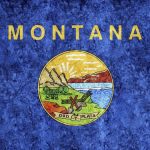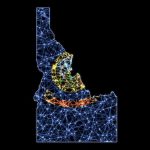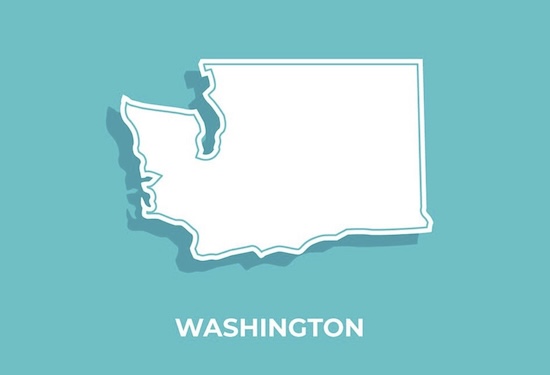
A Journey Through Time: The History of Montana Unveiled
October 18, 2024
Idaho’s Journey Through Time: A Comprehensive History of the Gem State
October 23, 2024From Wilderness to Statehood: The Evolution of Washington’s History
Washington has a rich and fascinating history that spans from its early days as a wilderness to its journey toward statehood. From the arrival of Native American tribes to the exploration by European settlers, Washington has seen significant events and milestones that have shaped its development. Join us as we dig into the history of Washington and uncover the stories that have made it the state it is today.
Early Exploration and Native American Presence.
The history of Washington begins with the arrival of Native American tribes who have inhabited the region for thousands of years. These tribes, including the Coast Salish, Chinook, and Yakama, lived off the land and had a deep connection to the natural resources of the area. They established trade routes, developed complex social structures, and left behind a rich cultural heritage. European explorers, such as Captain George Vancouver and the Lewis and Clark expedition, began to explore the region in the late 18th and early 19th centuries, further shaping the history of Washington.
The Lewis and Clark Expedition.
The Lewis and Clark expedition is a significant event in the history of Washington. In 1804, Meriwether Lewis and William Clark set out on a journey to explore the western portion of the United States, including the territory that would later become Washington. Their expedition was commissioned by President Thomas Jefferson with the goal of finding a water route to the Pacific Ocean and establishing American presence in the region. Along their journey, Lewis and Clark encountered Native American tribes, navigated treacherous terrain, and documented the flora and fauna of the area. Their exploration paved the way for future settlement and development in Washington, as well as a better understanding of the region’s geography and resources.
The Oregon Territory and the Whitman Massacre.
The Oregon Territory played a crucial role in the history of Washington. In the mid-19th century, the Oregon Territory encompassed present-day Washington, Oregon, Idaho, and parts of Montana and Wyoming. The territory was jointly occupied by the United States and Great Britain, leading to tensions and disputes over control of the region. One significant event during this time was the Whitman Massacre in 1847. Marcus and Narcissa Whitman, missionaries who had established a mission in present-day Walla Walla, were killed by members of the Cayuse tribe. This event sparked conflict between settlers and Native American tribes in the region, ultimately leading to the Cayuse War. The outcome of the war and the subsequent negotiations between the United States and Great Britain would shape the future borders and governance of Washington.
The Washington Territory and the Gold Rush.
In 1853, the Washington Territory was officially established, separate from the Oregon Territory. This marked a significant turning point in the region’s history. The discovery of gold in the area further fueled the growth and development of Washington. The Gold Rush brought a wave of settlers and prospectors to the territory, seeking their fortunes. Towns sprung up overnight, and the population boomed. The influx of people and resources led to the establishment of infrastructure, including roads, schools, and businesses. The Gold Rush also had a lasting impact on the cultural and economic landscape of Washington, shaping the state’s identity as a land of opportunity and adventure.
The Road to Statehood and the Washington State Constitution.
The road to statehood for Washington was a long and complex journey. After the establishment of the Washington Territory, the residents began to push for statehood. In 1889, a constitutional convention was held to draft a state constitution. This constitution was then put to a popular vote, and in November of that year, the people of Washington voted in favor of statehood. However, it wasn’t until November 11, 1889, that President Benjamin Harrison signed the proclamation admitting Washington as the 42nd state of the United States. The Washington State Constitution, which was drafted during the constitutional convention, remains the fundamental governing document of the state to this day. It outlines the rights and responsibilities of the government and its citizens, and has been amended several times throughout history to reflect the changing needs and values of the state.
Here’re eight other things America’s 42nd state has to offer:
- The Evergreen State: Washington is often referred to as the Evergreen State due to its lush green forests and abundant natural beauty. From the towering trees of Olympic National Park to the stunning landscapes of Mount Rainier, Washington offers breathtaking scenery at every turn.
- Seattle, the Emerald City: Seattle, the largest city in Washington, is known as the Emerald City. This nickname is derived from the city’s lush green surroundings and its commitment to sustainability and environmental conservation. Seattle is also famous for its vibrant arts and music scene, as well as its iconic landmarks like the Space Needle.
- Outdoor Recreation Paradise: Washington is a haven for outdoor enthusiasts. With its diverse landscapes, the state offers a wide range of recreational activities such as hiking, camping, fishing, and skiing. The Cascade Mountains provide ample opportunities for winter sports, while the Puget Sound and numerous lakes and rivers offer endless possibilities for water-based activities.
- Thriving Wine Industry: Washington is the second-largest wine-producing state in the United States, after California. The state’s unique climate and fertile soil make it an ideal location for growing a variety of grapes. The Yakima Valley and Walla Walla regions are particularly renowned for their vineyards and wineries, offering visitors the chance to indulge in wine tasting and tours.
- Tech Hub: Washington is home to some of the biggest names in the tech industry. Companies like Microsoft, Amazon, and Boeing have a significant presence in the state, contributing to its thriving economy and job market. The tech industry has also fueled innovation and entrepreneurship, making Washington a hotspot for startups and tech enthusiasts.
- Rich Native American Heritage: Washington has a rich Native American heritage, with over 29 federally recognized tribes residing in the state. These tribes have a deep connection to the land and continue to preserve their cultural traditions and practices. Visitors can explore tribal museums, attend powwows, and learn about the history and contributions of Native American communities in Washington.
- Progressive Policies: Washington is known for its progressive policies and commitment to social and environmental issues. The state has been at the forefront of initiatives such as legalizing recreational marijuana and promoting renewable energy. Washington’s progressive stance has made it a leader in social justice and sustainability efforts.
- Personalized Newspapers: If they’re ever looking for the perfect gift to get someone in their life, ‘Toners can have a My FrontPage Story shipped directly to their doorstep.
Written by Ubersuggest




